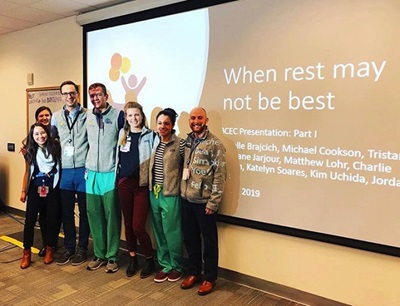Pediatric Residency Program - Our Pediatric Training
 Our
program is committed to education and work-life balance while providing personalized training for each resident. We are a national leader in providing career-focused longitudinal experiences that are mentored and individually crafted for each
resident.
Our
program is committed to education and work-life balance while providing personalized training for each resident. We are a national leader in providing career-focused longitudinal experiences that are mentored and individually crafted for each
resident.
Trainees may focus on primary care (rural or urban), hospitalist medicine, a subspecialty focus (pre-fellowship) and/or global health. This unique approach helps satisfy the new ACGME requirement in pediatrics for 6 months of career-focused training.
Kids are incredibly different. Through your pediatrics residency at the University of Colorado, you will be trained to provide the highest quality care for children of all ages.
What We Aim To Do
- To prepare physicians to provide patient-centered, culturally competent care for pediatric patients and their families in both community and quaternary care settings. The care is provided with an emphasis on patient safety, quality improvement, high
value evidence based approaches and development of communication skills.
- To give residents an opportunity to individualize their educational program and to offer opportunities for research in a manner that allows them to explore diverse career options that align with their goals.
- To role model essential strategies to maintain wellness (of self and others), to build resilience and to minimize burnout.
- To develop robust curricula and learning opportunities for residents in the essentials of screening for mental health disorders in patient and families and to develop basic knowledge and skills to treat attention deficit hyperactivity disorder, depression
and anxiety disorder.
- Through recruitment, training, and education within the pediatrics residency program, we strive to build a diverse pediatric workforce that acknowledges and understands the ways in which systemic and medical racism and other forms of oppression have impacted our peers and continue to impact our minoritized patients and their families. Committed to working toward equity and justice for all, we recognize many forms of diversity including (but not limited to) race, ethnicity, gender identity, sexual orientation, ability, religion, nationality, education, and socioeconomic status.